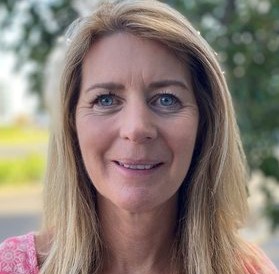TUESDAY MORNING GUEST SPEAKER

On Tuesday morning Anne-Marie Friis joined us to talk about KiwiHarvest Food Rescue, a charity started in 2012 by lawyer Deb Manning to both rescue food and feed those going without.
Anne-Marie’s role at KiwiHarvest is Marketing and Fundraising; a fine fit for her having previously worked in international food marketing.
KiwiHarvest tackles “Two Big Problems [with] One Clever Solution” in that they regularly collect good food from places such as supermarkets before it goes to landfill, then they redistribute the food to those in need, across New Zealand.
The benefits in doing both these things include reducing the negative impacts of food waste on our environment, and nourishing those who need it, so they can concentrate on improving other areas of their lives to ultimately thrive.
In every respect the figures to do with this operation are impressive:
• “Every month KiwiHarvest rescues 170,000 - 200,000Kg of good quality surplus food”; at best, in one year alone, that is 2,400,000 Kilograms of food saved from landfill.
• The rescued food equates to 30,379,234 meals, and KiwiHarvest currently supply 225 recipient charities who then distribute the food throughout their communities.
• 28,176,740 tonnes of carbon dioxide have been prevented from reaching our atmosphere; and as a consequence of rescuing so much food, our landfills aren’t as big as they could have been by now.
KiwiHarvest ought to receive carbon credits, but that system doesn’t currently recognise not for profit or charity organisations which is a shame because if they could, KiwiHarvest could use the credits to do more good, like, extend their operation to other centres (Currently only the Auckland region, Dunedin, Queenstown and Invercargill benefit from KiwiHarvest’s work.).
Anne-Marie highlighted that New Zealand is currently capable of feeding 40 million people, so even though we aren’t properly feeding our own, we have the capacity to make this happen. And with additional facts like:
• 25% of our water goes into food production, and,
• 30% of food goes to waste,
It is clear that many adjustments need to be made to our food production system and our consumer behaviour for a healthier society and planet.
Anne-Marie reminded us that we are the ones who get to inform the type of world we want to live in by choosing what foods we eat (and how much of them), and what companies to support, after all:
“Every time you spend money, you’re casting a vote for the kind of world you want.” — Anna Lappé